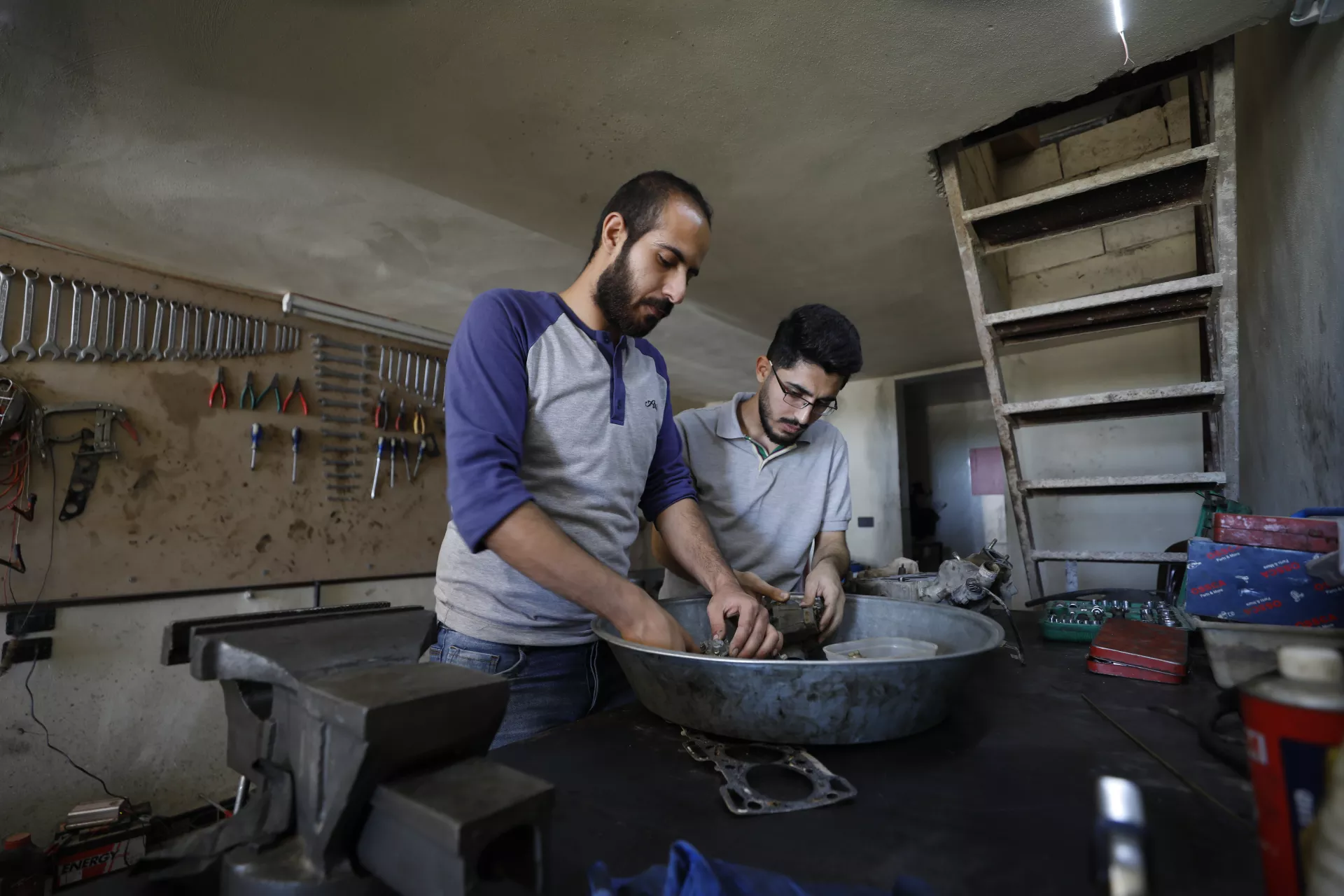Syrian youth start their entrepreneurship journey with support from UNICEF
To help Syrian youth cope with the impact of seven years of conflict and reach their full potential, UNICEF launched a livelihoods, seed-funding and entrepreneurship programme.

To help Syrian youth cope with the impact of seven years of conflict and reach their full potential, UNICEF launched a livelihoods, seed-funding and entrepreneurship programme. Last year, with thanks to generous funding from Japan, over 400 children and young people aged 10 to 24, benefited from extensive trainings on entrepreneurship, civic engagement and life skills. At the end of the programme, after presenting compelling and well-planned project proposals, 13 youth-led initiatives received seed-funding to help kick-start their projects and turn them into reality. George and Rawad are two of our young entrepreneurs. Meet them and be inspired!
Damascus, Syria, 27 May 2018- In the very busy Jaramana neighbourhood, on the outskirts of Damascus, a small garage lined with tools is where George and Rawad’s dream of owning a car repair workshop first came true.
The pair met at the faculty of mechanical engineering, where the two young men became best friends. Together, they took part in UNICEF’s seed-funding programme and developed a social business proposal to start “The Academic Centre for Maintenance and Training;” a car-repair workshop where students can get hands-on experience and practice their technical skills. The workshop officially opened its doors last August, just three months after receiving the funding which they used to pay for rent and purchase equipment.
Through the training with UNICEF, we learned important skills like marketing, financial management and communication with customers.
“It wasn’t just the seed-funding that allowed us to start our project, it’s how they motivated us and prepared us well for the market,” he adds.
But their journey was not without challenges.
“The first two weeks were painful, we had no customers and we thought we were going to fail,” continues Rawad.
The pair also faced skepticism from their families, and from other car mechanics in the area who distrusted their young age and their lack of experience.
“Everyone around us had a stereotype about engineering students, that we don’t know how to work with our hands,” recalls George, also 25, with a smile. “And it was true, but we managed to break that image. The same mechanics in the area who used to doubt us now send us the cars they’re unable to fix. ‘Use your technology!’ they tell us, referring to our modern equipment,” he adds.
Their jobs are also physically challenging, and require long hours of work in uncomfortable positions.
We’ve had to sleep here more nights than I can remember to finish work on time, even when there was fighting in the area, you cannot do this work if you’re not passionate about it.

Despite these challenges, the workshop now welcomes an average of three cars per day and has become self-sufficient. The two business partners now have regular customers and a good reputation for being professional and cost-efficient.
“We have an advantage in that our theoretical knowledge complements the practical skills we are developing here every day and we are adding something to the field by being innovative in our approach to repairs,” says Rawad. “For an engineer, there is nothing more rewarding than solving problems,” he adds.
George and Rawad’s colleagues, and students of mechanical engineering often visit the workshop for inspiration. While trainings have not officially started as planned, the two are currently developing a curriculum to help mechanical engineering students improve their skills and become more attractive to future employers.
“A mechanical engineer without practical experience is not an engineer,” says George.
The two are more confident than ever that they have made the right choice, venturing into entrepreneurship.
We were willing to take the risk. If you don’t have the courage to take chances, you will not advance in life. We can no longer imagine a day without the smell of gasoline, it’s the smell of dreams being made!



